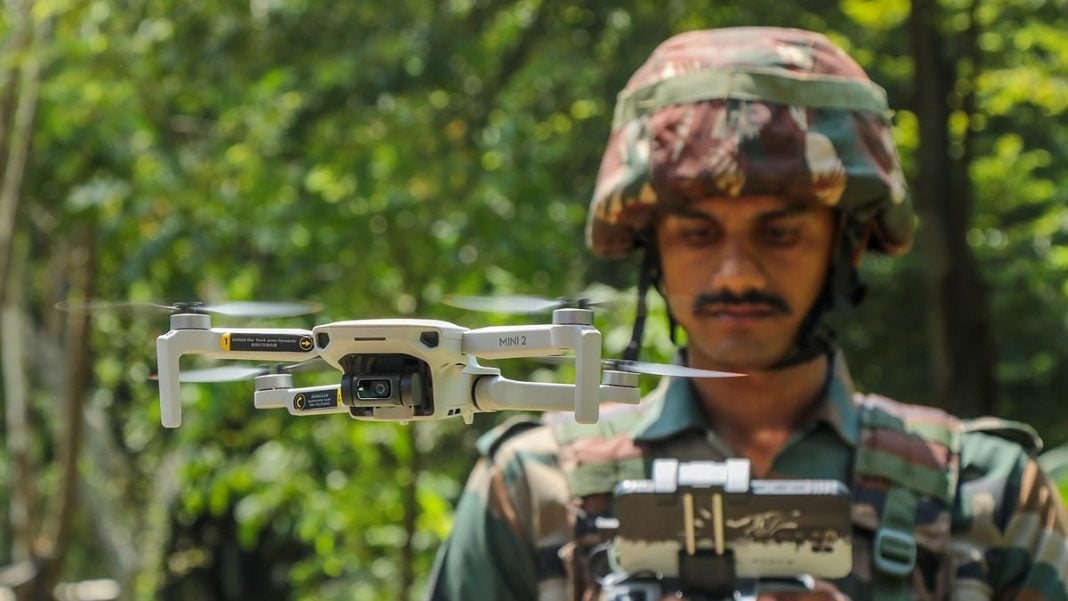In a decisive move to safeguard national security and ensure cybersecurity integrity, the Indian government has scrapped three defence contracts for the supply of 400 logistics drones to the Indian Army due to the inclusion of Chinese components. The contracts, worth over ₹230 crore, were signed under emergency procurement provisions in 2023 with a Chennai-based private company.
Drones Targeted for Deployment Along the LAC
These drones, including:
- 200 Medium-Altitude Drones
- 100 Heavy-Weight Logistics Drones
- 100 Light-Weight Logistics Drones
were primarily intended for deployment along the 3,488-km Line of Actual Control (LAC) with China, amid the ongoing military standoff in eastern Ladakh since April 2020.
Cybersecurity Concerns Trigger the Decision
A senior defence official highlighted the critical cybersecurity risks associated with the use of Chinese components and electronics, stating:
“Unfortunately, some Indian companies are using Chinese components in drones meant for the armed forces. This poses a major cybersecurity threat, with the potential for data breaches, operational compromise, and even hostile takeover of drone systems.”
Concerns include:
- Potential backdoor vulnerabilities enabling remote control or surveillance by adversaries.
- Risk of jamming or soft-kill attacks, compromising operational missions.
- Data security threats, with sensitive military information at risk of exposure.
Operational Failures Raise Red Flags
The urgency of the matter was amplified after recent operational failures involving unmanned aerial vehicles (UAVs) along India’s borders with China and Pakistan.
- In August 2024, an infantry unit in Rajouri lost control of a fixed-wing VTOL UAV, which inadvertently veered into Pakistan-occupied Jammu & Kashmir.
- Although attributed to a technical glitch, the incident triggered a comprehensive review of drone security protocols.
Stringent Measures to Ensure Security Compliance
In response, the defence establishment has introduced stricter procurement protocols, including:
- Rigorous technical verifications to ensure drones are free from Chinese parts and malicious codes.
- Enhanced certification requirements from drone manufacturers.
- Counter-checking mechanisms during procurement and operational deployment.
The Defence Ministry’s Department of Defence Production has also directed leading industry bodies like FICCI, CII, and Assocham to:
- Sensitize and caution member companies against procuring Chinese components.
- Promote the development of indigenous alternatives in the drone manufacturing ecosystem.
A Broader Push for Indigenous Drone Capability
This development comes amid India’s aggressive push towards self-reliance in defence technology (Aatmanirbhar Bharat), especially in the domain of unmanned systems. The Indian Armed Forces are rapidly expanding their drone capabilities, including:
- Nano, mini, and micro drones for tactical operations.
- Kamikaze drones and armed swarms for offensive missions.
- MALE (Medium-Altitude Long-Endurance) and HALE (High-Altitude Long-Endurance) UAVs for surveillance and combat support.
Conclusion
This bold move by the government highlights its unwavering focus on national security and the growing importance of cybersecurity in modern warfare. It also serves as a stern reminder to domestic defence manufacturers to align with India’s strategic objectives, ensuring that the armed forces are equipped with secure, reliable, and indigenous technologies.
Discover more from SSBCrack
Subscribe to get the latest posts sent to your email.








